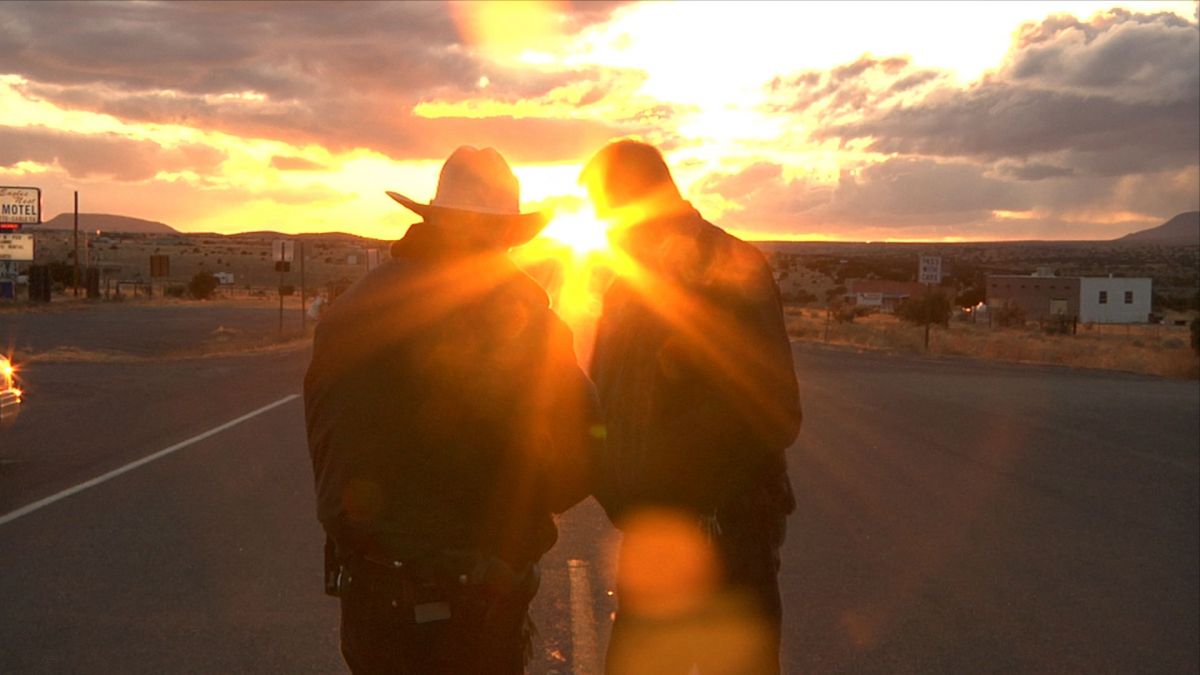
We sat down with acclaimed filmmaker Eugene Jarecki to talk with him about his penetrating look at the profound human rights implications of America’s longest war: the War on Drugs. His film, The House I Live In, premiered on Independent Lens.
What impact do you hope this film will have?
The hope is that by reaching as many people as possible, serious conversations about drug policy reform will start taking place across the country. We would like to support local achievable initiatives in pursuit of a domino strategy, encouraging further legislation with small victories, while simultaneously making drug policy an issue large enough on the national stage that it’s hard to ignore. We want to let policymakers, criminal justice professionals, and community leaders know that the water is warm – that they are not the only ones who have the sneaking suspicion that our current way of handling drugs and addiction is backward and failing. For too long, it has been taboo to suggest that drug use is anything but a crime, but that approach is clearly and demonstrably not working.
What led you to make this film?

Filmmaker Eugene Jarecki
I’ve been thinking about making this film for over 20 years.
I first met Nannie Jeter, a prominent character in the film, when I was just a few days old coming home from the hospital. From that day on, she became a second mother to me, and her children and grandchildren a second family. I am white and Nannie and her family are black, and growing up in the wake of the civil rights movement, I think I imagined we were all living in a post-racial America – a place of greater equality and justice. Yet, as we grew older, our paths diverged – where I found privilege and opportunity, Nannie’s family found a new kind of struggle that re-emerged with a vengeance for black Americans in the post-civil rights era.
When I asked Nannie what had happened, she felt that it was chiefly the rise of drugs in America that had ravaged the lives of people in her family. But the more I talked to experts in drug abuse, the more I heard the same thing – that whatever damage drugs do to people has been made far worse by the laws America has enacted to stop drugs. Suddenly, the so-called “war on drugs” began rising into view as something I had to investigate and better understand. I wanted to know what it was that had most fundamentally hurt people I love.
What were some of the challenges you faced in making this film?
Managing the demands of a character driven narrative alongside an examination of such wide-ranging and dense policy – all while keeping the whole project coherent and concise.
How did you gain the trust of the subjects in your film?
We were honest and forthright with them, and in several cases spent significant amounts of time with subjects before asking them the hard questions. For the most part though, we found that people we talked to were eager to share their views on the drug war, both those affected by it and those carrying it out.
What would you have liked to include in your film that didn’t make the cut?
When I interviewed prisoner Anthony Johnson in a federal facility, I was advised it was against the rules to shake hands with the prisoner. So I let him know that I was shaking his hand in my mind, and with the same boyish smile I would see repeatedly during his account of a rudderless and challenging childhood, he told he was shaking my hand in his mind too.
Tell us about a scene in the film that especially moved or resonated with you.
Being present at the funeral of a family member of one of the film’s central characters and learning how widely the drug war had touched her family.
What has the audience response been so far? Have the people featured in the film seen it, and if so, what did they think?
The response has been very positive – and people seem happy we made it. It’s a heavy subject, and a dense film, so new audiences often seem a bit overwhelmed as they process the pile of bricks that’s been dropped on their heads. I think the best indicator of its success is that many people have told us they were still thinking about the film weeks after seeing it. Most of the subjects have seen it and so far have had nothing but good things to say.
The independent film business is a difficult one. What keeps you motivated?
The good fight.
Why did you choose to present your film on public television?
When we started trying to find funds for The House I Live In several years ago, it wasn’t a good time for documentaries. Public television stations around the world were the only outlets interested in supporting difficult and important projects. Without public television (in the US and UK in particular) this film probably would never have been made.
What didn’t you get done when you were making your film?
I didn’t handle any other aspect of my life very well. For me, making a film is all consuming.
What are your three favorite films?
When We Were Kings, It’s a Wonderful Life, and The Lives of Others.
What advice do you have for aspiring filmmakers?
Take the scenic route.
Learn more about The House I Live In.
